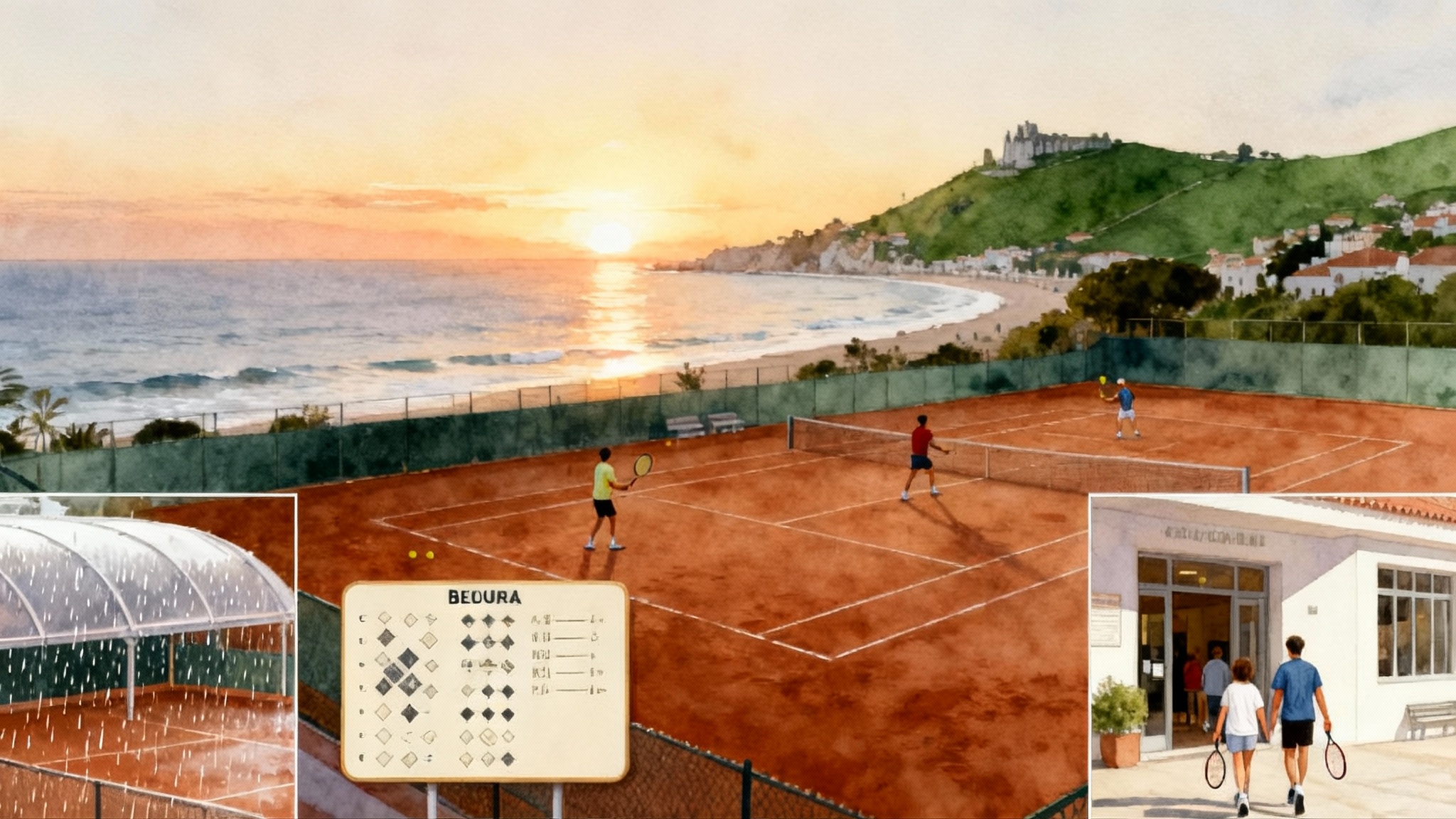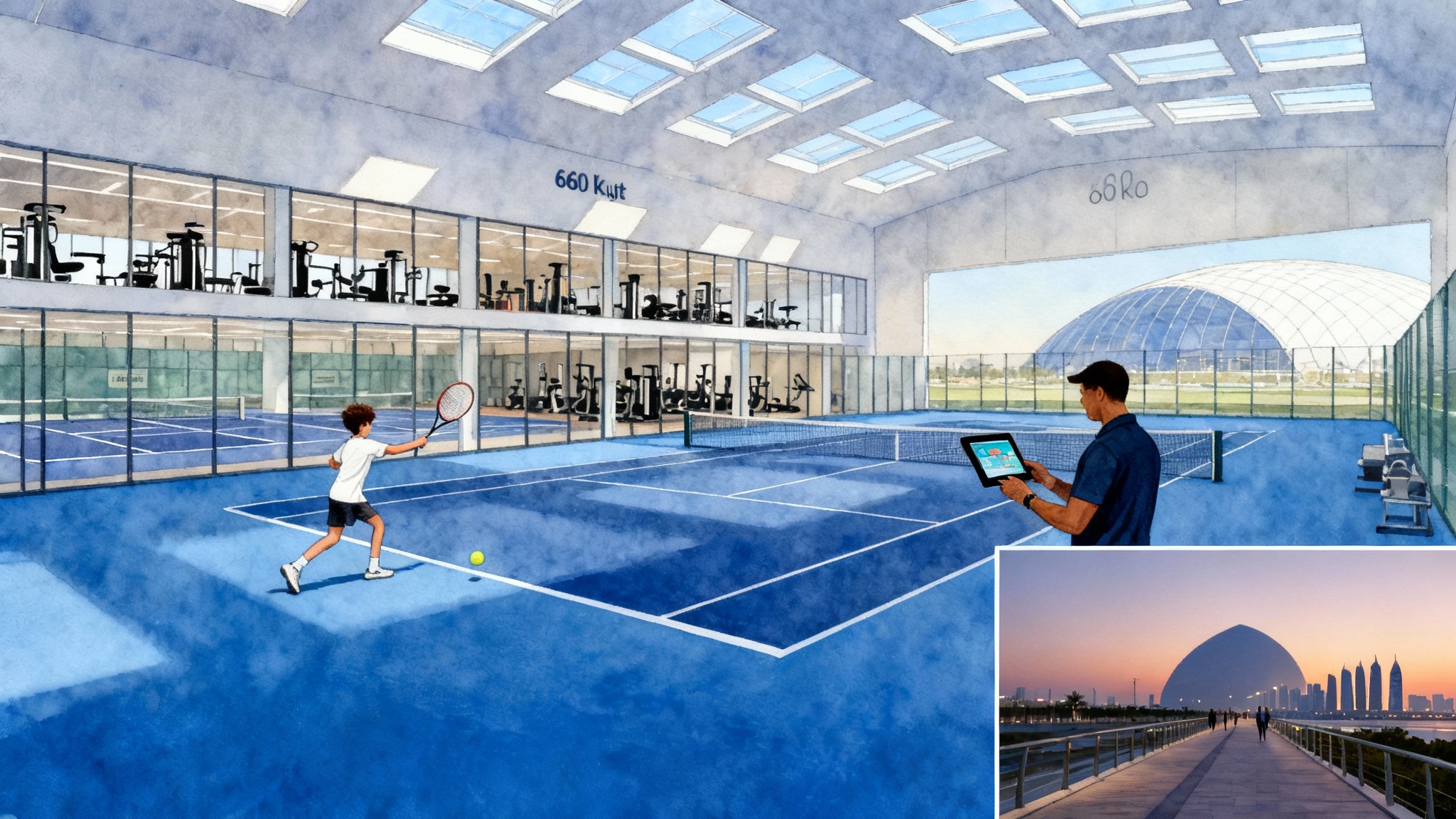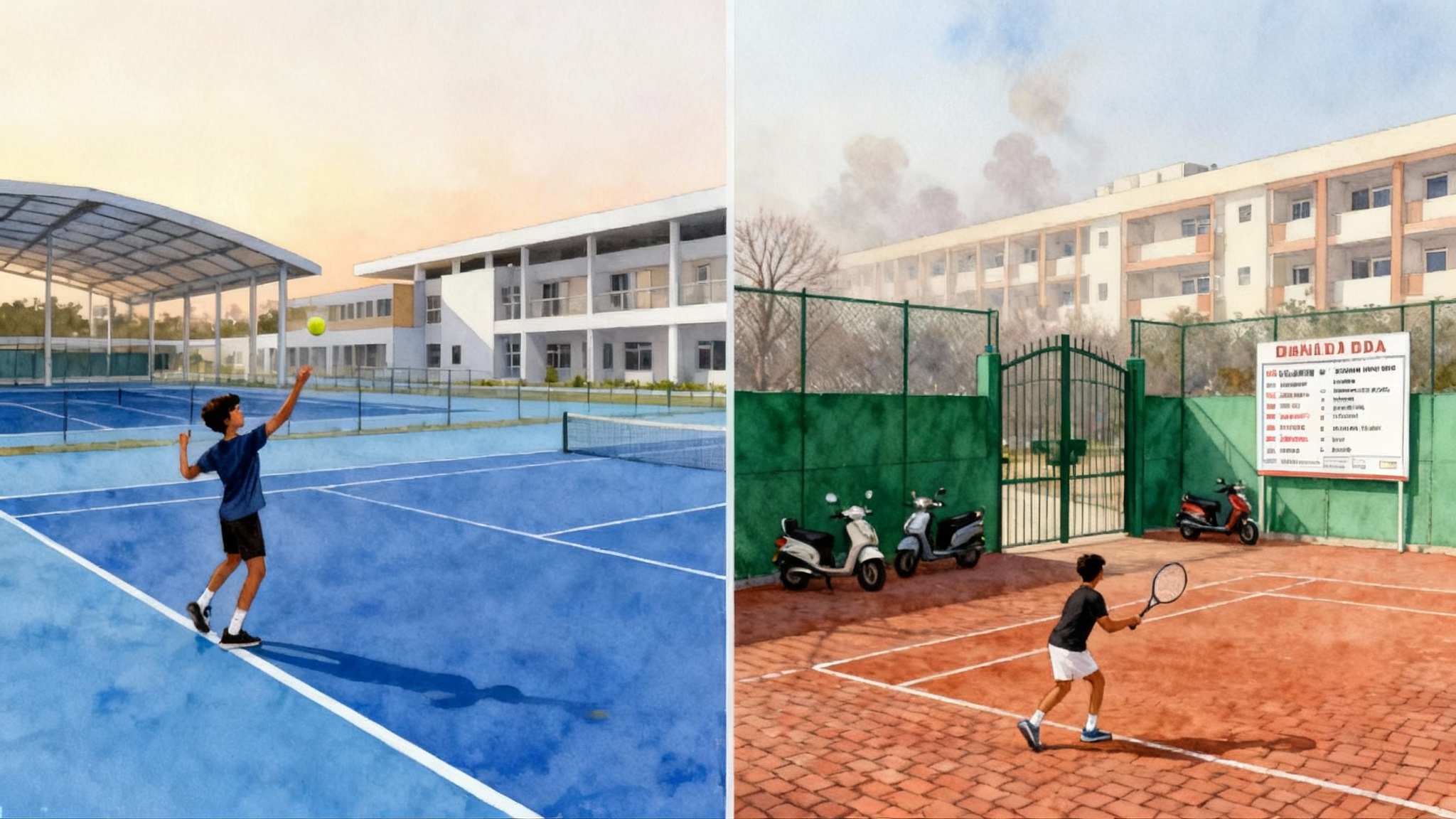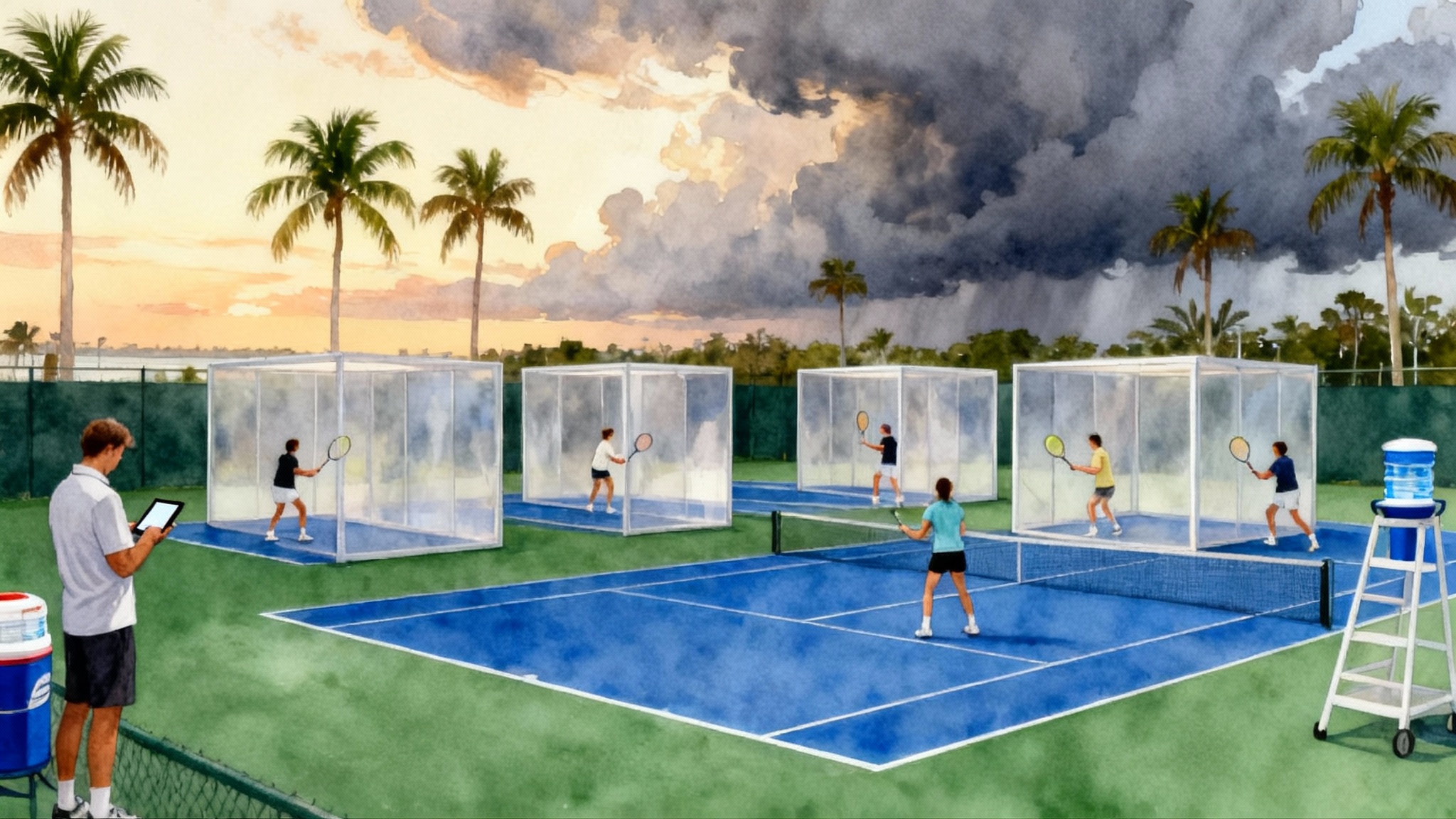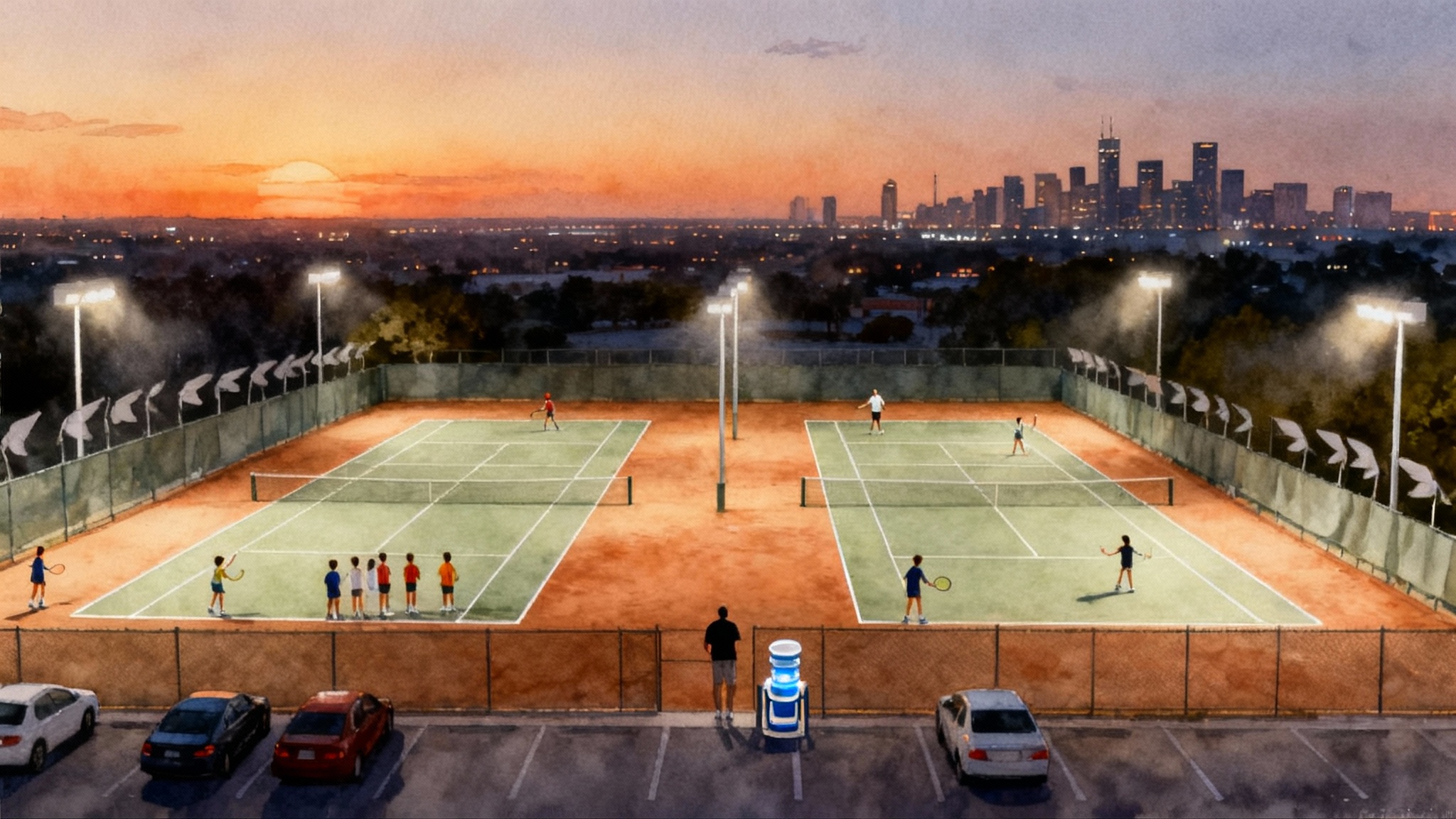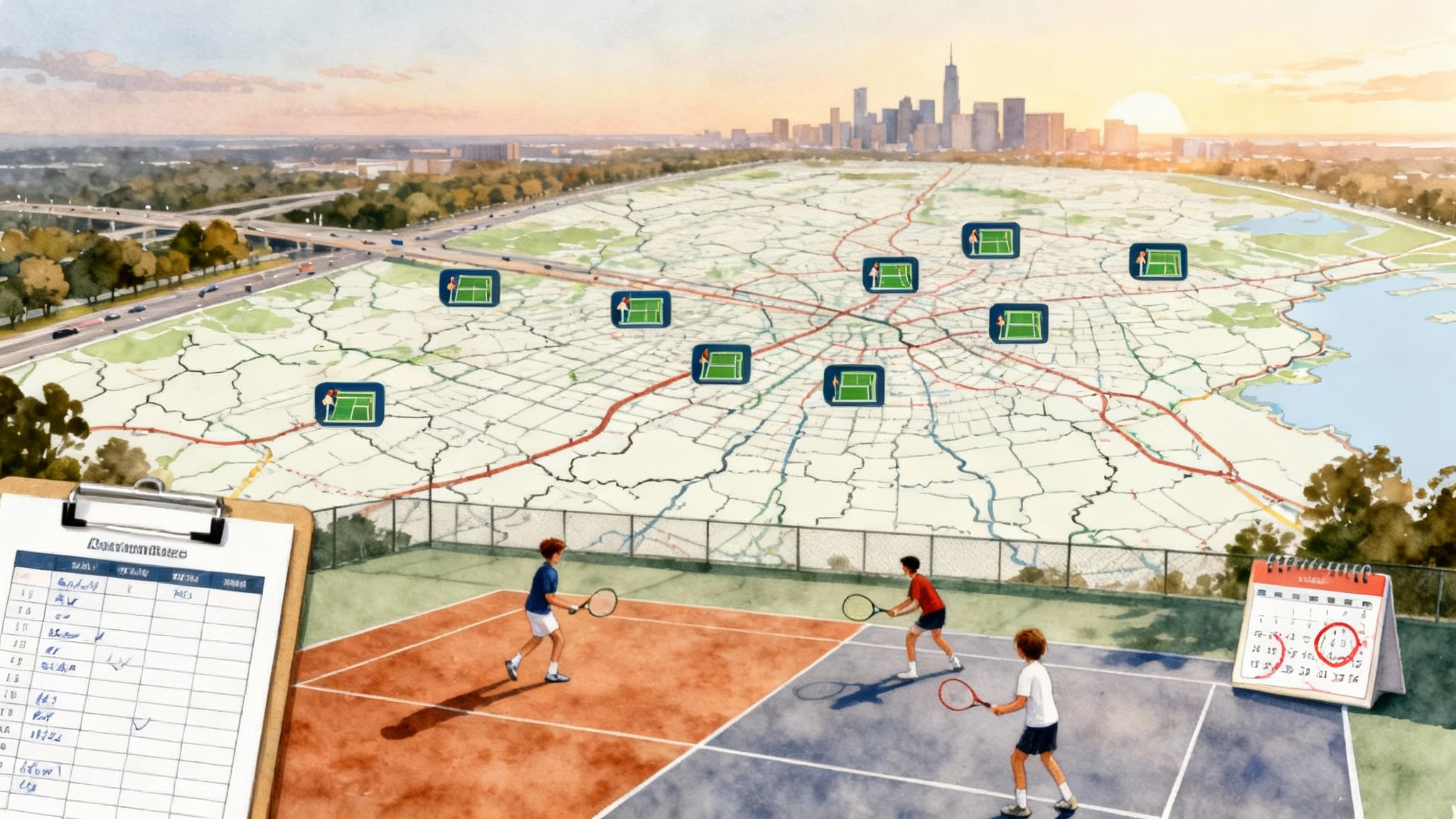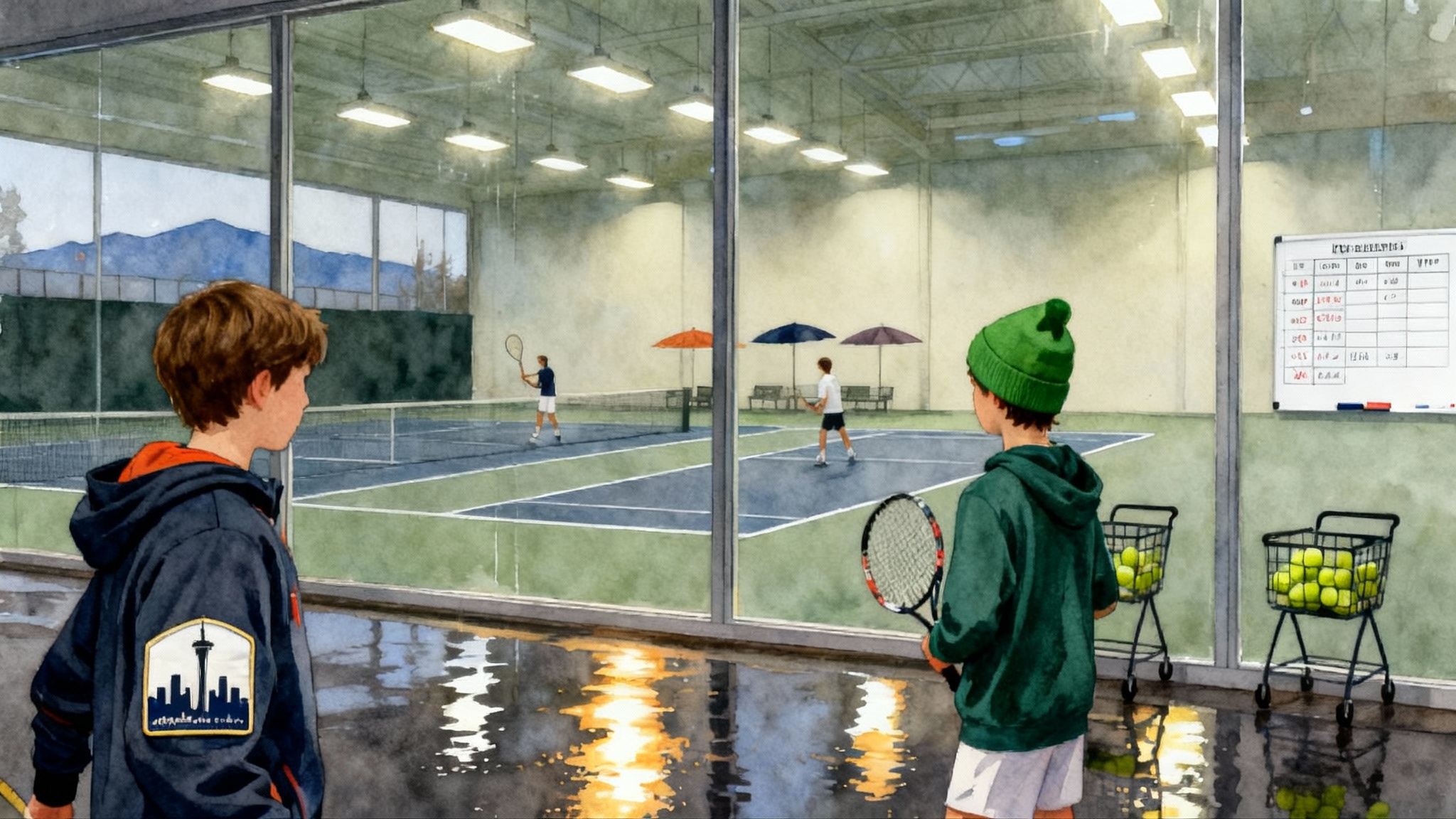Best New York City Area Tennis Academies 2025–2026 Guide
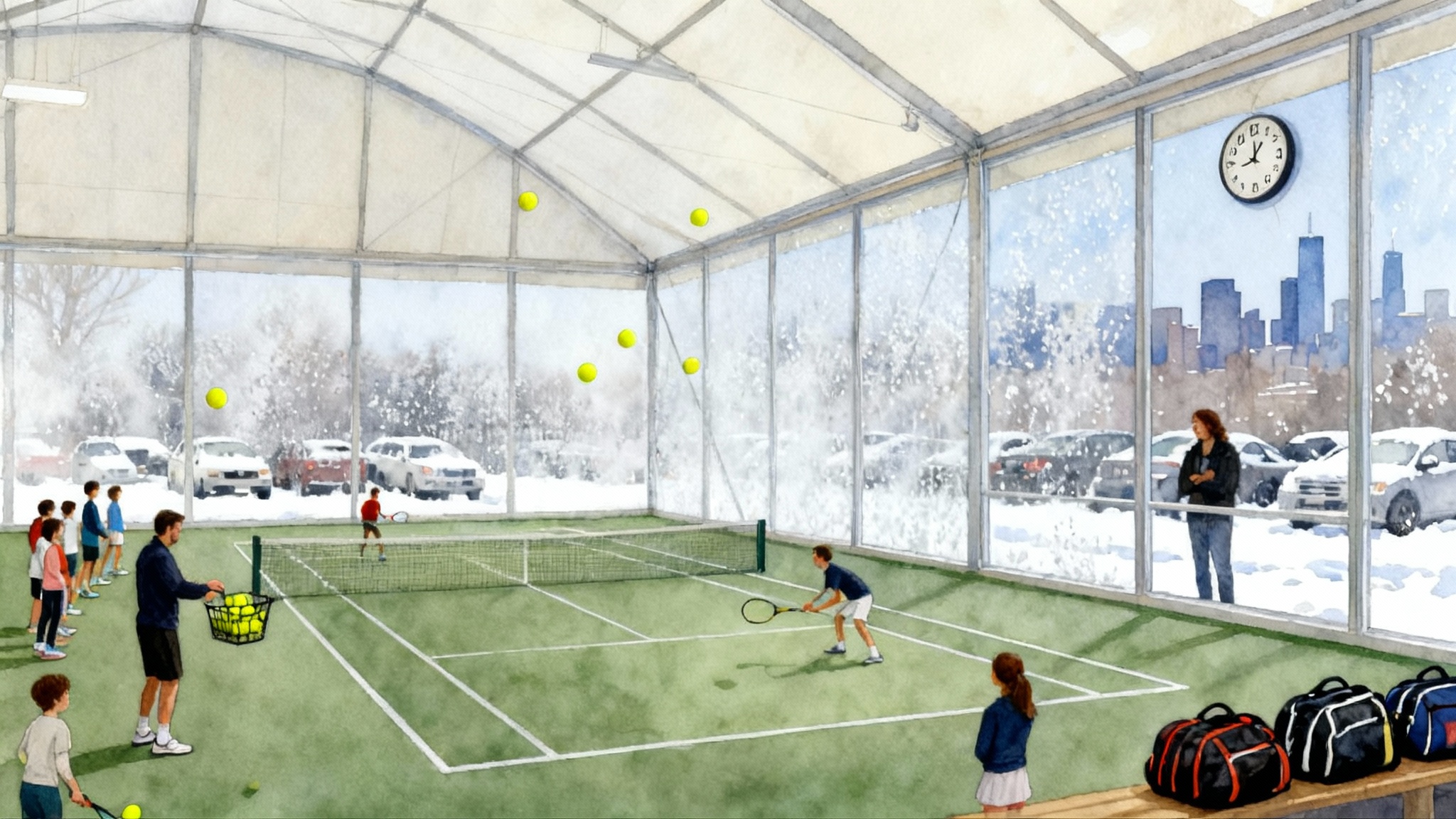
How to use this 2025–2026 buyer’s guide
If you are raising a junior player in the New York City area, you already know two truths. Winters are real, and time is tight. The right academy solves both by pairing reliable indoor courts with a training rhythm that fits family life. This guide cuts through marketing and focuses on what matters to commuting families for the 2025 to 2026 season. If you are also weighing warm‑weather or West Coast options, see our Best Miami–Fort Lauderdale academies and the Los Angeles and Orange County guide.
We compare academies by six decision drivers:
- Winter indoor court access and reliability
- Weekly training blocks and progression
- UTR and match-play integration
- Homeschool and academics support
- Commute logistics
- Transparent pricing
You will also find mini profiles of standout programs and a decision matrix by borough and suburb, followed by sample weekly plans and budget bands you can actually use.
The six factors that actually matter
1) Winter indoor court access
New York tennis lives or dies by indoor time from November through March. Ask not only whether courts are “indoor” but whether the academy controls enough peak winter hours. A great program on two weekday courts will feel crowded by midseason. Red flags include frequent reschedules, rolling waitlists for rainy days, and training groups that swell above coach ratios after daylight savings.
Practical check: In your tour, ask how many indoor courts the academy controls on weekday afternoons and Saturday mornings in January, how many groups run in those windows, and what the coach-to-player ratio is when attendance is full.
2) Weekly training blocks and progression
Strong commuter academies use predictable two to four hour blocks that bundle technical work, live ball, and competitive play. Progression means the same coaches track themes week to week, and players hit with peers of similar level and speed of learning. Ask to see the season plan for stroke themes, footwork, and tactical segments. You are looking for repeatable blocks such as 45 minutes of technical drills, 45 minutes of patterns, 30 minutes of situational points, and 30 minutes of fitness.
3) UTR and match-play integration
Universal Tennis Rating, often called UTR, is the currency of competitive junior tennis because it rewards frequent, level-appropriate matches. For commuters, the academy that pairs training with regular verified play saves you two extra car rides each week. The best programs run in-house verified matches, host UTR events on Sunday, and help families plan level-correct tournaments. Ask how many verified matches their typical advanced player posts each month in winter and who manages entries.
4) Homeschool and academics support
Some families pursue reduced school day or homeschool to capture daytime blocks. Look for supervised study halls, quiet rooms, and real coordination with school counselors. The strongest operators can write a weekly academic schedule, proctor exams, and share attendance logs.
5) Commute logistics
A 20 minute drive becomes 55 minutes if your window crosses bridge traffic or tournament pickup time. Smart academies build start times around real traffic patterns and offer optional shuttle routes from common hubs. Ask for the most conservative travel plan in January when weather is worst and daylight is short.
6) Transparent pricing
New families deserve clear tuition, fees for matches and tournaments, and realistic add-ons. Transparency means the rate card lists seasonal tuition, drop-ins, lesson rates, strength training, match fees, and any facility or membership charges. It also means your trial week credit applies to tuition if you enroll.
Quick decision matrix by area
Use this matrix as a shortlist tool. Ratings are relative for commuter families this winter: Good, Better, Best.
| Area | Standout academies to consider | Winter indoor access | Training blocks | UTR and match play | Homeschool and academics | Commute predictability | Pricing transparency |
|---|---|---|---|---|---|---|---|
| Manhattan | John McEnroe Tennis Academy at Sportime Randall’s Island | Best | Best | Best | Better | Better | Better |
| Bronx | TCR The Club of Riverdale; Stadium Tennis Center | Better | Better | Better | Better | Best | Better |
| Queens | USTA National Tennis Center; Cunningham Park programs | Better | Better | Best | Good | Better | Good |
| Brooklyn | MatchPoint NYC; Prospect Park Tennis Center | Better | Better | Better | Good | Good | Good |
| Westchester | Tennis Innovators Academy; New Rochelle Racquet Club; Yonkers Tennis Center | Best | Best | Better | Better | Best | Better |
| Northern New Jersey | CourtSense Tenafly and Bogota; Centercourt Chatham | Best | Best | Best | Better | Better | Better |
Note: The matrix is designed for commuters first. A “Best” does not mean the absolute top for full-time boarding models. It means the strongest mix of reliability, progression, and access for families driving in from school.
Mini profiles: what each program gets right
John McEnroe Tennis Academy at Sportime Randall’s Island, Manhattan
Indoor access: Twelve month climate-controlled access with deep winter coverage. One of the few city options where peak weekday and Saturday windows are consistently available in winter.
Training blocks: Clear progression with two to three hour blocks that combine technical themes, live ball patterns, and pressured point play. Grouping is tight by level, which protects reps per hour.
UTR and match play: Regular in-house verified matches and a steady calendar of weekend events keep players active without constant tournament travel.
Homeschool and academics: Limited dedicated study space on site relative to suburban complexes, but weekday daytime blocks are available for reduced school day.
Commute notes: Best from East Side and Upper Manhattan. Tunnel and bridge traffic adds variability for outer boroughs.
Pricing transparency: Published seasonal tuition and clear private lesson rates. Expect higher per-hour costs than suburban peers because of Manhattan facility costs.
Best for: Committed players who need predictable winter hours without leaving the city.
TCR The Club of Riverdale, Bronx
Indoor access: Reliable winter bubble with strong weekday coverage and good Saturday options.
Training blocks: Two to three hour academy blocks with defined themes and consistent coach assignments.
UTR and match play: Verified match opportunities plus local tournament support make it easy to keep a steady UTR cadence.
Homeschool and academics: One of the more structured Bronx options for supervised study and daytime training.
Commute notes: Convenient for Riverdale, Inwood, and Upper West Side families. Shuttle options may be available; ask about winter schedules.
Pricing transparency: Clear seasonal rates with add-ons spelled out.
Best for: Families who want a one-stop routine with shorter drives than Randall’s from some West Side neighborhoods.
Stadium Tennis Center, Bronx
Indoor access: Large multi-court winter setup that can absorb peak demand.
Training blocks: Varied program menu, including high performance groups and fitness add-ons.
UTR and match play: Frequent in-house match play and hosted events reduce travel time.
Homeschool and academics: Some daytime options; ask about supervised study capacity.
Commute notes: Convenient from Harlem, the Bronx, and upper Manhattan with flexible start times to dodge traffic.
Pricing transparency: Market-standard seasonal tuition with clear drop-in and lesson rates.
Best for: Players who benefit from bigger player pools for match variety.
USTA Billie Jean King National Tennis Center, Queens
Indoor access: Winter bubbles provide coverage, though tournament hosting and events can tighten prime windows. Confirm your specific time slots.
Training blocks: Strong technical coaching with access to a diverse peer group. Two hour blocks common, with direct pathways into weekend competition.
UTR and match play: High volume of verified play on site. Families can stack Sunday events with weekday training.
Homeschool and academics: Limited supervised study spaces; daytime blocks exist but are competitive.
Commute notes: Best for Queens and east side Manhattan families. Parking and event schedules can affect arrival times.
Pricing transparency: Clear public rate cards; lesson pricing varies by coach tier.
Best for: Players who want the energy of a national center and frequent matches on the same campus.
MatchPoint NYC, Brooklyn
Indoor access: Large indoor footprint in South Brooklyn with winter reliability.
Training blocks: Performance groups offer structured two to three hour sessions with fitness integrated.
UTR and match play: Regular match play and weekend events with a sizable Brooklyn player base.
Homeschool and academics: Limited formal academic support; stronger for traditional school commuters.
Commute notes: Most practical for Brooklyn and Staten Island families. Allow extra time on weekday evenings.
Pricing transparency: Straightforward seasonal tuition and package discounts.
Best for: Players who want a big facility environment and deep local sparring.
Tennis Innovators Academy, Westchester
Indoor access: Consistent winter court control across Westchester locations. Weekday afternoon blocks are a strong suit.
Training blocks: Tight, progression-based blocks with an emphasis on live ball and patterns layered on technical themes. See the Tennis Innovators Academy profile for facilities, locations, and program menus.
UTR and match play: In-house verified play and coordinated weekend events help players log meaningful matches without long drives.
Homeschool and academics: Daytime training windows and workable study spaces; ask about supervised study and exam proctoring.
Commute notes: Excellent for families in White Plains, Scarsdale, Harrison, and Rye. Access from Upper Manhattan is reasonable via the Henry Hudson and Cross County.
Pricing transparency: Clear rates for semester packages, strength training, and private lessons.
Best for: Families who want a suburban commute with city-level intensity and reliable winter hours.
New Rochelle Racquet Club High Performance, Westchester
Indoor access: Robust winter capacity with multiple courts in peak after-school windows.
Training blocks: Defined two hour and longer blocks with coach continuity.
UTR and match play: Regular match play ladders and verified events.
Homeschool and academics: Flexible daytime options; confirm supervised study availability.
Commute notes: Easy from southern Westchester and the Bronx via the Hutchinson River Parkway.
Pricing transparency: Clear seasonal tuition and lesson packages.
Best for: Players who need reliable after-school windows and weekend match access.
Yonkers Tennis Center, Westchester
Indoor access: Dependable winter bubble with family-friendly early evening blocks.
Training blocks: Progression-oriented junior pathway that scales up to performance groups.
UTR and match play: Frequent match play and level-based groupings to protect competitive reps.
Homeschool and academics: Some daytime capacity for flexible schedules.
Commute notes: Fast from Riverdale, Inwood, and Upper Westchester; parking is simple.
Pricing transparency: Transparent program menus and rates.
Best for: Younger players moving into performance training who need a calm, consistent environment.
CourtSense Tenafly and Bogota, Northern New Jersey
Indoor access: Strong winter coverage across two nearby facilities, which helps balance group sizes and time slots.
Training blocks: Highly structured blocks with clear technical progression and integrated fitness.
UTR and match play: Deep calendar of verified matches. Players benefit from a concentrated pool of strong New Jersey juniors.
Homeschool and academics: Well suited for reduced school day schedules with multiple daytime blocks and study spaces.
Commute notes: Efficient from the Upper West Side and Upper Manhattan via the George Washington Bridge when you avoid rush peaks.
Pricing transparency: Clear tiered lesson rates and academy tuition by season.
Best for: Players who value a system-driven approach and frequent competitive play with minimal travel.
Centercourt Performance Tennis Academy, Chatham, Northern New Jersey
Indoor access: Significant indoor coverage with training across several nearby Centercourt sites.
Training blocks: Intense performance blocks with dedicated strength and movement sessions.
UTR and match play: Regular verified play and guidance for tournament planning.
Homeschool and academics: Structured daytime options and supportive study environments.
Commute notes: Most practical for families west of the Hudson; Manhattan families should test the drive during winter rush.
Pricing transparency: Clear program tiers and add-on services.
Best for: Serious tournament players who want all pieces in one program.
Sample weekly plans for common family situations
Here are three examples you can adapt. Hours reflect a typical winter. Swap in the academy nearest you that matches the same structure.
A) Traditional school, grades 6 to 10
Goal: Three academy sessions, one verified match day, one lesson.
- Mon: Rest or recovery. Light mobility at home.
- Tue: Academy block, 2 hours. Theme example: forehand patterns, first ball depth.
- Thu: Academy block, 2 hours. Theme example: serve plus one, neutral ball defense.
- Fri: Private lesson, 60 to 90 minutes. Video feedback and serve progressions.
- Sun: In-house verified match set or round robin, 2 hours.
Why this works: Training is bundled into two focused blocks with a dedicated skill day and a competitive day. School nights stay manageable.
B) Reduced school day or homeschool
Goal: Four daytime blocks plus one match day.
- Mon: Academy block, 2.5 hours. Technical focus and live ball.
- Tue: Fitness and movement, 60 minutes, plus serve practice, 30 minutes.
- Wed: Academy block, 2.5 hours. Tactical themes and situational points.
- Fri: Academy block, 2.5 hours. Pattern play and pressure games.
- Sun: Verified match play or tournament entry.
Why this works: Daytime training frees evening family time and reduces commute stress. Players accumulate enough live reps to progress without overloading.
C) Late starter moving into performance
Goal: Two academy sessions, one guided match, one group fitness session.
- Tue: Academy block, 2 hours. Technical foundations.
- Thu: Group fitness and footwork, 60 minutes.
- Sat: Guided match play, 2 hours, with a coach rotating courts to reinforce patterns.
- Optional: Short private lesson every other week focused on one stroke with video.
Why this works: The plan builds volume safely while protecting technical quality.
Budget bands you can plan around
These ranges reflect typical 2025 winter pricing that families report in the region. Actual numbers vary by facility, coach tier, and commitment. Use them to set expectations before you tour.
- Manhattan academy blocks: 85 to 140 dollars per player-hour. A two hour session two times per week for a 16 week semester lands near 5,500 to 9,000 dollars.
- Bronx and Queens academy blocks: 70 to 115 dollars per player-hour. Two times per week for a 16 week semester lands near 4,500 to 7,500 dollars.
- Brooklyn academy blocks: 70 to 110 dollars per player-hour. Similar semester total 4,300 to 7,000 dollars.
- Westchester academy blocks: 65 to 110 dollars per player-hour. Two times per week for a 16 week semester lands near 4,200 to 7,000 dollars.
- Northern New Jersey academy blocks: 65 to 110 dollars per player-hour. Two times per week for a 16 week semester lands near 4,200 to 7,000 dollars.
Common add-ons:
- Private lessons: 100 to 220 dollars per hour depending on coach tier and location. Packages can shave 10 to 15 percent.
- Strength and movement: 25 to 60 dollars per session when bundled. Standalone small-group sessions are often 35 to 50 dollars.
- Verified match fees or ladders: 20 to 45 dollars per event. Tournament entry fees vary by organizer.
- Facility or membership fees: 0 to 450 dollars per season depending on club model.
How to pressure-test pricing: Ask for a sample invoice that includes tuition, two private lessons per month, two match events per month, and any facility fees for January through March. Compare that across your finalists.
Commute strategy that saves hours, not minutes
- Map the worst case, not the best case. Test the drive in mid January at the exact start time you plan to attend.
- Use earlier starts to dodge bridge congestion. A 3:30 p.m. start often beats a 4:30 p.m. start by 20 minutes.
- Choose one weekend home base. If your player competes most Sundays at one facility, make that facility a training finalist.
- Think in clusters. Westchester families near I 287 have smoother access to multiple sites. Upper Manhattan families who cross the George Washington Bridge have the best shot at Northern New Jersey programs. South Brooklyn families save time with Brooklyn based options, even if the brand name across the river looks shiny.
- Build a car kit. Keep shoes, grips, snacks, and resistance bands in the trunk. One forgotten item can burn a 40 minute round trip.
How to interview an academy in one hour
Bring this script and take notes on each point. If an answer feels vague, ask for a number or a document.
- Indoor coverage: Exactly how many courts do you control on weekday afternoons in January and on Saturday mornings. What is your maximum group size and coach ratio in those windows.
- Weekly blocks: Show me this season’s curriculum and where my player would start. How often does the same coach see my player.
- UTR integration: How many verified matches does a typical advanced player here log each month in winter. Who sets the schedule and confirms entries.
- Academics: Do you provide supervised study space and attendance logs. Can you coordinate with my school counselor.
- Commute: What start times do your Upper West Side or Riverdale families choose to avoid traffic. Do you offer any shuttle routes.
- Pricing: May I see a sample invoice for January through March that includes tuition, two lessons per month, and two match events per month. If we enroll, is our trial week credited to tuition.
A shortlist by family profile
- Manhattan family with limited weeknight time: John McEnroe Tennis Academy at Sportime Randall’s Island. Strong winter reliability and tight grouping keep reps per hour high.
- Upper West Side or Riverdale family with a car: TCR The Club of Riverdale or Yonkers Tennis Center. Shorter drives and predictable parking.
- Queens based family that wants a single campus for training and matches: USTA Billie Jean King National Tennis Center.
- South Brooklyn family seeking big-facility reliability: MatchPoint NYC.
- Westchester family balancing school and high-volume reps: Tennis Innovators Academy or New Rochelle Racquet Club.
- Northern New Jersey family aiming for frequent verified play with a system-first approach: CourtSense Tenafly and Bogota or Centercourt Chatham.
Final checklist before you enroll
- Attend one full trial week and track actual coach ratio, ball touches, and how often your player faced a peer of similar level.
- Confirm make-up policies for snow days and tournaments.
- Get the real calendar. Ask for the winter blackout dates and test weeks that affect your block.
- Read the contract twice. Look for proration terms and refund policies.
- Pick one anchor and commit. Two or three days at one academy almost always beats a split plan.
Conclusion
The best academy for a New York City area family is not a trophy name. It is the place that delivers winter reliability, a repeatable training rhythm, on campus match play, and honest pricing within a commute you can live with from January to March. Start with the programs above that match your neighborhood, run a focused trial week, and choose the team that protects reps per hour. When your player gets consistent indoor time, level-correct opponents, and a schedule the family can sustain, progress follows and the winter stops feeling long.
